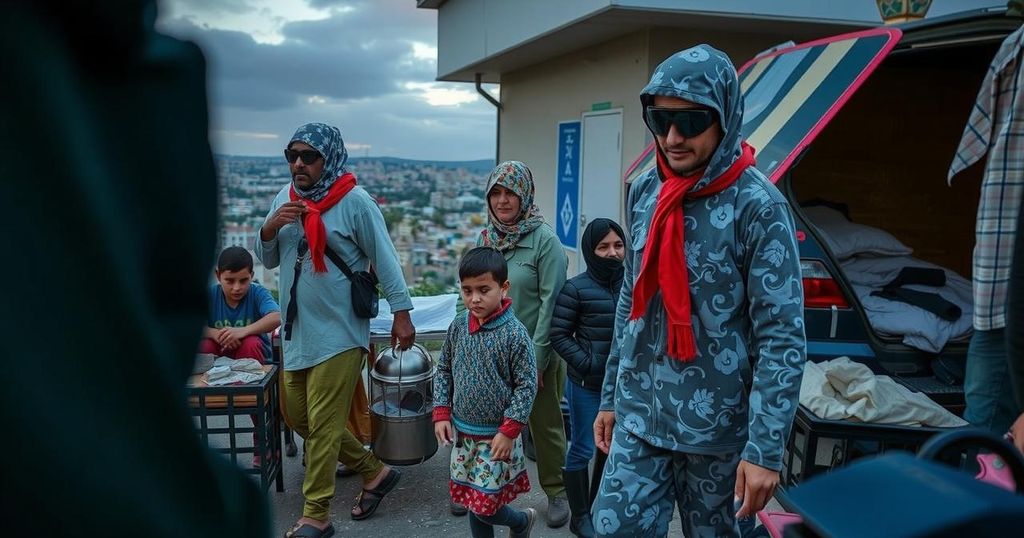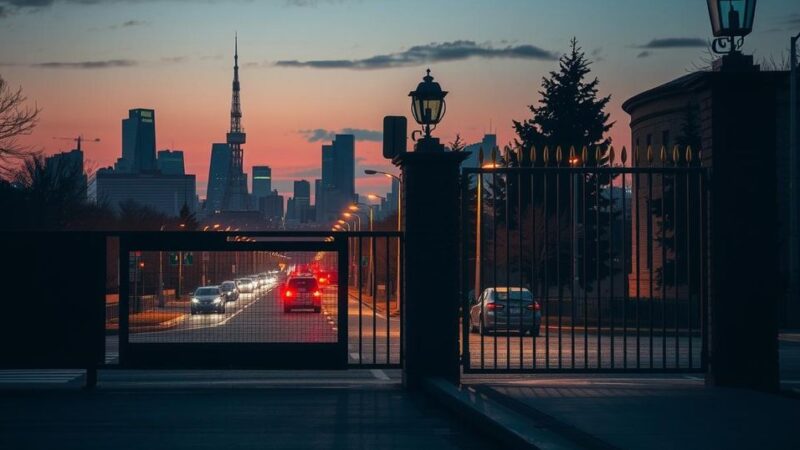Following a ceasefire between Israel and Hezbollah, Lebanese refugees are beginning to return from Iraq, despite widespread destruction in their homes. While some families are eager to return, citing their deep connection to their homeland, others face uncertainty regarding their living conditions and the future of their children upon returning to Lebanon.
In the wake of a recently established ceasefire between Israel and Hezbollah, many Lebanese families, previously displaced in Iraq, are beginning their return to southern Lebanon. Ali Abdulla, a resident of southern Lebanon, expressed his determination: “After two months, we are returning to our homeland. We will return even if we find our homes destroyed; we will sit on the ground.” This illustrates the strong connection these families have with their homeland, despite the hardships they may face upon their return.
Official reports indicate that over 20,000 Lebanese sought refuge in Iraq following the outbreak of hostilities, with Najaf airport officials noting that approximately 800 Lebanese are currently returning to Beirut each week. Yousef Barakat, another returnee, stated, “Returning home was faster than we expected. A ceasefire has been achieved. We, the southerners, have not and will not abandon our land.”
The Iraqi government has facilitated this process by providing essential support services, such as free accommodation and healthcare for the displaced families. Nevertheless, significant challenges remain, as many Lebanese are reluctant to return to homes that are reportedly uninhabitable. Rabea Ali, a mother of four, expressed her concerns: “I no longer have a home; everything is destroyed. If we return, where will we sleep, on the street? What is the future of our children if they stay in Lebanon? No education, no future, and no home.”
Meanwhile, her son Omar has found employment in Baghdad, indicating a growing concern among families about instability and the prospects for their future in Lebanon. Nevertheless, the hope of returning home remains strong for many, including 11-year-old Ali Hassan, who expressed a desire to visit his deceased friend’s grave in Lebanon, stating, “I hope to return to Lebanon to visit his grave and pray for him.”
Thus, as families begin to return to southern Lebanon amid ongoing uncertainties, the effects of the conflict continue to reverberate through their lives, showcasing both their resilience and their apprehensions about the future.
The article discusses the return of Lebanese refugees from Iraq back to southern Lebanon, facilitated by a ceasefire agreement between Israel and Hezbollah. The backdrop includes the significant displacement of families due to an intense conflict that erupted following hostilities related to the Gaza war. The government of Iraq, along with local Shi’ite institutions, has provided support to those affected, allowing for a gradual but complicated return process as families grapple with the destruction left behind in their homes.
In conclusion, the return of Lebanese families from Iraq represents both hope and trepidation. While many are eager to reconnect with their homeland, significant challenges related to living conditions and future stability remain. The resilience shown by these families, amid their difficult circumstances, highlights the profound connection they have to their roots, while also raising critical questions about the future of their homeland.
Original Source: indianexpress.com







